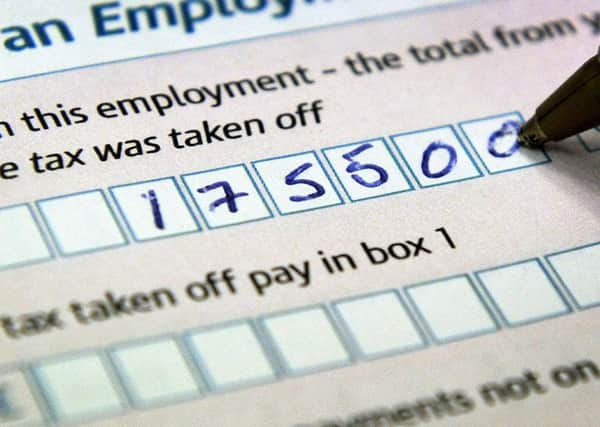This is why an emergency tax code is used, expert explains


My son has just started his first job out of university and is being taxed on an emergency tax code. Why might this have happened? And how can he recover any overpaid tax?
Anonymous, via email
Gareth says…
The reason why your son is out of pocket is because he’s likely missing out on his tax-free allowance, and that he’s paying tax on all of his income. There’s a few reasons why this would have happened – perhaps HM Revenue and Customs (HMRC) didn’t have enough information about your son to correctly calculate how much tax he should pay.
Advertisement
Hide AdAdvertisement
Hide AdThat said, it’s very common for this to occur when someone starts a new job. When you start a new job, you’re usually given a P45 by your old employer. This informs your new employer how much you have been paid during a tax year, and how much tax you’ve paid. It will also contain your tax code.
But if you don’t have a P45 because you don’t have an old employer, this can create issues for you. You can also end up on an emergency tax code if you have income from other sources, or you’ve started receiving some benefits such as a pension.
Depending on the information available, it’s likely that your son is being charged tax at the basic rate or the higher rate of his entire pay packet. In England, Wales and Northern Ireland, the basic rate of tax is 20 per cent and the higher rate is 40 per cent. In Scotland, rates are different – you pay 19 per cent at the starter rate, 20 per cent at the basic rate and 21 per cent at the intermediate rate – these will vary depending on how much you earn. The higher rate of tax is 41 per cent.
There are a number of different tax codes, and it’s worth understanding what they mean. You can find out what it is on your payslip, near your National Insurance number. Common emergency tax codes will end with either ‘M1’ or ‘W1’. This means that your tax is being calculated on a non-cumulative basis, meaning that your tax is being calculated on the period that you’ve been taxed for, not your earnings across the tax year. M1 will be applied if you’re paid monthly, W1 if you’re paid weekly. You see an X if you have a non-standard pay period.
Advertisement
Hide AdAdvertisement
Hide AdAlternatively, you might be put on an OT tax code as an emergency measure if HMRC has insufficient information about your annual income.
A BR code means that you receive no tax-free personal allowance, so everything you earn will be taxed at the basic rate.
If you’ve been given an emergency tax code that excludes the personal allowance, you might miss out on tax relief for £12,570 of your income. This means you might pay more tax than is necessary. In England, Wales and Northern Ireland, a basic-rate taxpayer could overpay by more than £2,500, while a higher-rate taxpayer could overpay by more than £5,000.
The good news is that your son won’t be overtaxed forever. HMRC usually corrects things once it has more information. But he can contact HMRC directly on 0300 200 3300, or by using its online Income Tax Checker. Then he can expect to get a rebate of any tax he’s overpaid.